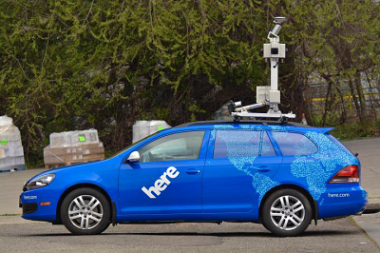News Roundup: Atlanta Builds a Smart Corridor, Hitachi Develops App to Park Cars Via Remote Control, and More
A roundup of some of the biggest headlines to come out of the driverless and connected-car industries over the past week:
Hitachi and Clarion Co. develop app to park your car via remote smartphone app
Hitachi has partnered up with Clarion Co. to develop a smartphone app that allows you to park your car by remote control from outside the car. It works for parallel or perpendicular parking, or parking in a garage. The companies announced this week that they plan to offer the system to vehicle manufacturers initially, to attain early commercialization. Read more from JapanToday.
Atlanta’s North Avenue to become smart corridor, and potentially driverless corridor
A project is underway along Atlanta’s North Avenue to transform it into a smart corridor, complete with smart signals and lighting. Even the pavement will have markings and sensors that can talk to each other and talk with the traffic signals to make vehicular, bicycle and pedestrian traffic move more safely and efficiently. A representative of the City of Atlanta says, once the smart corridor is complete, the city has also received more than a dozen proposals to host a self-driving car demonstration there as well, which could potentially lead to the avenue becoming a driverless car corridor as well. North Avenue is a highly congested corridor, anchored on once side by Georgia Tech and on the other end by Ponce City Market. Read more from Curbed: Atlanta and AJC.com.
Chinese company buys stake in Nokia’s Here mapping system
The Chinese technology group Tencent has bought a stake in Nokia’s mapping system arm, Here. Industry analysts speculate that Tencent wants to win market share away from its two biggest competitors in the burgeoning driverless car market, Baidu and Alibaba. Here will compete with Amap, the in-car mapping system Baidu and Alibaba recently purchased from AutoNavi two years ago. Market figures indicate Baidu and Alibaba’s mapping systems each get around 200 million users per month. Tencent’s current mapping system only gets around 8 million users per month. Chinese laws only allow a certain number of licensed providers to create maps of the country due to national security concerns. Read more from Financial Times.

